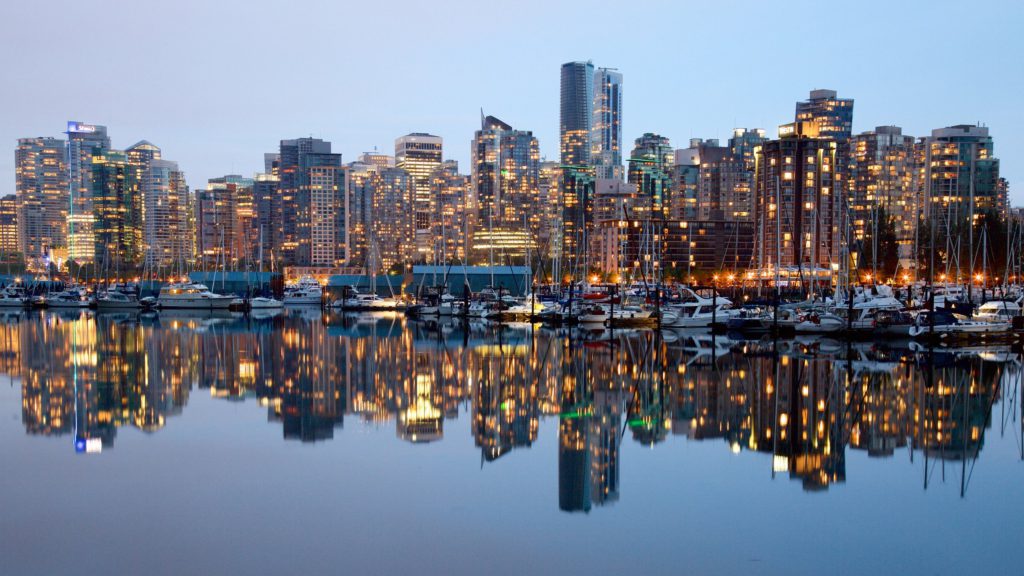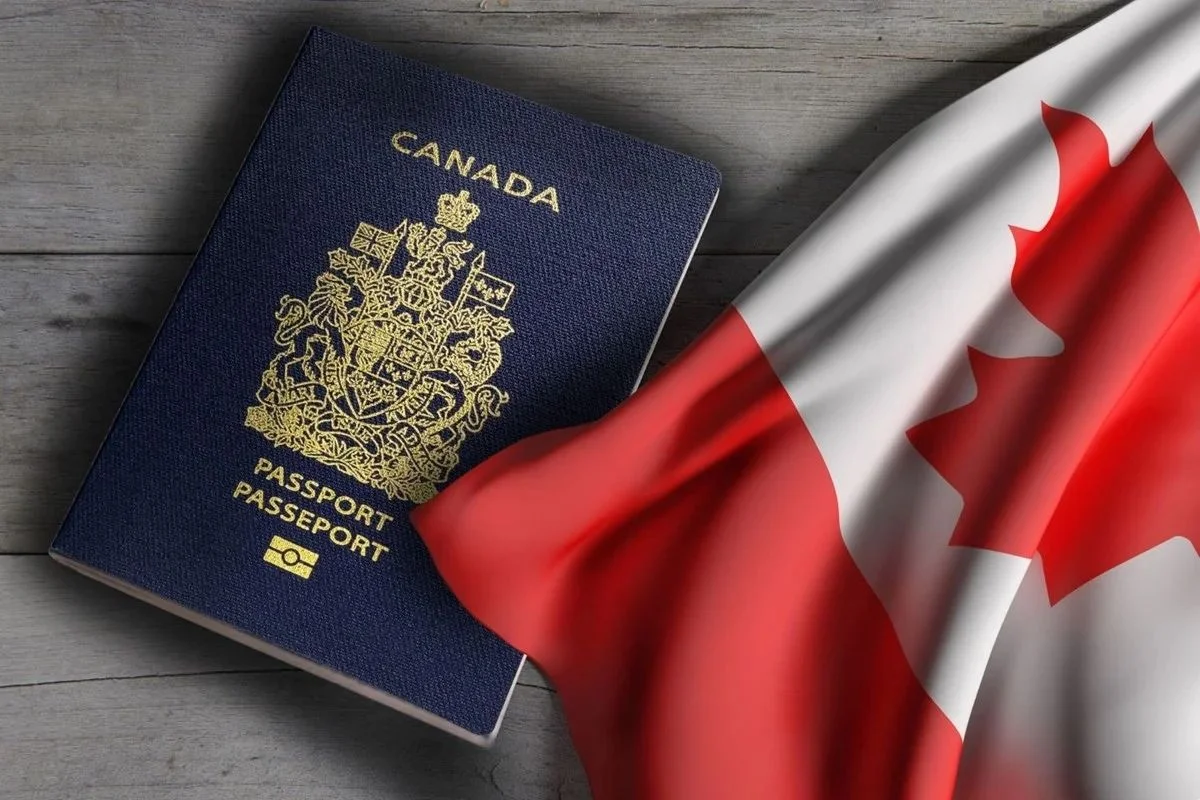Canada is a popular destination for international students, and many of them aspire to become permanent residents (PR) after completing their studies. PR status provides numerous benefits, including the ability to live and work in Canada indefinitely and access to social services and other benefits.
To obtain PR in Canada, international students must meet the eligibility criteria for one of the various immigration programs available. The process can be complex and time-consuming, but with the right strategy and guidance, international students can improve their chances of success.

What is the PR (Permanent Residency) in Canada?
In Canada, PR stands for Permanent Residency. It is a status granted to foreign nationals who are authorized to live and work in Canada permanently, with most of the same rights and privileges as Canadian citizens, including access to social services, healthcare, and education. Permanent residents are also able to apply for Canadian citizenship after meeting the eligibility criteria.
PR in Canada for Students from Bangladesh
In recent years, Canada has become an increasingly popular destination for students from Bangladesh who are looking to obtain Permanent Residency (PR). This is due to Canada’s welcoming immigration policies, which prioritize highly skilled and educated individuals who can contribute to the Canadian economy and society.
What can You do in Canada with a PR?
With a Permanent Residency (PR) status in Canada, an individual can live, work, and study anywhere in the country for an indefinite period of time. They are eligible for most of the same rights and privileges as Canadian citizens, including access to social services, healthcare, and education. Additionally, PR holders can apply for Canadian citizenship after meeting the eligibility criteria.
The Scenario for Bangladeshi Students who get PR
International students in Canada who have Permanent Residency (PR) status enjoy many benefits and opportunities. With a PR, they are no longer restricted by study permits and can work in any job, anywhere in Canada. They also have access to government-funded healthcare and social services, and can apply for various forms of financial aid, such as student loans and grants. In addition, having a PR can make it easier for international students to secure employment after graduation and potentially apply for Canadian citizenship.
However, it’s important to note that having a PR does not guarantee employment or financial success, and international students with PR status may still face challenges in the job market or in adapting to Canadian culture. It’s recommended that students seek guidance and support from their institutions and communities to help them navigate their transition to life in Canada.
Eligibility Requirements for Getting PR in Australia
Here are the eligibility requirements for getting Permanent Residency (PR) in Canada”
- Language proficiency: Applicants must demonstrate proficiency in English or French by taking a language test approved by the Canadian government.
- Education: Applicants must have completed a post-secondary education or have equivalent work experience.
- Work experience: Applicants must have at least one year of skilled work experience in Canada, or qualify under one of the federal or provincial immigration programs.
- Age: Applicants must be under the age of 47 at the time of application.
- Adaptability: Applicants must show that they can adapt to life in Canada, including having a support network and being willing to participate in Canadian society.
- Health and security: Applicants must undergo medical and security checks to ensure they meet Canada’s health and safety standards.
It’s important to note that eligibility requirements can vary depending on the immigration program being applied for, and meeting these requirements does not guarantee acceptance into the program. It’s recommended that applicants thoroughly research their options and seek guidance from a qualified immigration consultant or lawyer before applying.
How to Get PR in Canada?
As an international student in Canada, there are several ways to apply for Permanent Residency (PR). Here are some of the most common options:
- Post-Graduate Work Permit Program (PGWPP): This program allows international students who have completed a program of study at a designated Canadian post-secondary institution to obtain an open work permit, which can be used to gain Canadian work experience. After working for at least one year in a skilled position, graduates can then apply for PR through the Canadian Experience Class (CEC) immigration program.
- Express Entry: This is a federal immigration system that manages applications for three economic immigration programs: the Federal Skilled Worker Program (FSWP), the Federal Skilled Trades Program (FSTP), and the CEC. International students who meet the eligibility criteria for one of these programs can create an Express Entry profile and potentially be invited to apply for PR.
- Provincial Nominee Programs (PNPs): Many Canadian provinces and territories have their own immigration programs that are designed to attract skilled workers and international graduates to their region. These programs have different eligibility requirements and application processes, but often prioritize applicants with connections to the province or a job offer from a local employer.
It’s important to note that the PR application process can be complex and competitive, so it’s recommended that international students seek guidance from a qualified immigration consultant or lawyer to help them navigate their options and improve their chances of success.

Step by Step Process of PR in Canada
Here is a step-by-step process for international students to obtain Permanent Residency (PR) in Canada:
- Determine eligibility: Review the eligibility requirements for PR in Canada, including language proficiency, education, work experience, age, adaptability, and health and security.
- Gain Canadian work experience: Obtain Canadian work experience through the Post-Graduate Work Permit Program (PGWPP) or other work permit options, and ensure that the work is in a skilled occupation as defined by the Canadian government.
- Improve language skills: If necessary, improve language proficiency in English or French through language classes or other language learning resources.
- Assess eligibility for Express Entry: Determine eligibility for the Express Entry program by completing an online assessment and creating an Express Entry profile.
- Improve Express Entry profile: Improve the Express Entry profile by gaining additional work experience, improving language skills, and obtaining a job offer or provincial nomination.
- Receive an invitation to apply: If selected from the Express Entry pool, receive an invitation to apply for PR.
- Submit PR application: Submit a complete and accurate PR application, including supporting documents and payment of fees.
- Wait for processing: Wait for the PR application to be processed, which can take several months or longer.
- Complete medical and security checks: Undergo medical and security checks to ensure eligibility for PR.
- Receive PR status: If approved, receive PR status and enjoy the benefits of living, working, and studying in Canada permanently.
It’s important to note that the process can be complex and competitive, and international students may want to seek guidance from a qualified immigration consultant or lawyer to improve their chances of success
How Long Does it Take to Get PR in Canada?
The time it takes to get Permanent Residency (PR) in Canada can vary depending on the immigration program, the individual’s eligibility, and the processing times of the government. Here are some estimates for common immigration programs:
- Express Entry: The processing time for Express Entry applications varies, but most applications are processed within six months. After receiving an invitation to apply for PR, individuals have 60 days to submit a complete application.
- Provincial Nominee Programs (PNPs): The processing time for PNP applications varies by province and program, but can range from several weeks to several months. After receiving a provincial nomination, individuals must submit a complete application for PR to the federal government.
- Canadian Experience Class (CEC): The processing time for CEC applications can vary, but most applications are processed within six months. After meeting the eligibility requirements and submitting an application, individuals may receive PR status.
Getting PR after Masters
After completing a Master’s degree in Canada, international students have several options to apply for Permanent Residency (PR). Here are some steps that may help:
- Gain Canadian work experience: One way to improve your chances of obtaining PR is to gain Canadian work experience. You may be eligible for the Post-Graduation Work Permit Program (PGWPP), which allows you to work in Canada for up to three years after completing your Master’s degree.
- Improve language proficiency: Language proficiency is an important factor for obtaining PR. Consider taking English or French language courses to improve your language skills.
- Determine eligibility for Express Entry: The Express Entry system manages applications for three federal immigration programs: the Federal Skilled Worker Program (FSWP), the Federal Skilled Trades Program (FSTP), and the Canadian Experience Class (CEC). You can assess your eligibility for these programs by completing an online assessment and creating an Express Entry profile.
- Improve Express Entry profile: To improve your Express Entry profile, you may want to gain additional work experience, improve your language skills, and obtain a job offer or provincial nomination.
- Apply for PR: If selected from the Express Entry pool, you will receive an invitation to apply for PR. Ensure that your application is complete and accurate, including supporting documents and payment of fees.
- Wait for processing: Wait for your PR application to be processed, which can take several months or longer.
Things to avoid to get PR in Canada
- Inadmissibility: If you have a criminal record or have been involved in illegal activities, you may be considered inadmissible to Canada and be disqualified from obtaining PR.
- Medical Inadmissibility: If you or your dependent family members have a medical condition that is considered a danger to public health or could cause excessive demand on Canada’s healthcare system, you may be considered medically inadmissible
- Lack of Language Proficiency: Language proficiency is an important factor for obtaining PR. If you do not meet the language requirements for the immigration program you are applying to, you may be disqualified.
- Lack of Work Experience: Some immigration programs require a certain amount of work experience in a specific occupation. If you do not meet the work experience requirements, you may be disqualified.
- Falsified Information: Providing false or incomplete information on your application can result in disqualification and may impact your future immigration applications.
Tips from Executive Study Abroad
To improve your chances of getting PR in Canada as an international student, focus on these key factors: choose the right immigration program, improve your language skills, gain relevant work experience, obtain Canadian education, build a network, maintain a good immigration record, and seek professional advice.
FAQs
Processing times for PR applications vary depending on the immigration program and other factors. It can take several months to a few years to receive a decision on your application.
Yes, international students can apply for PR in Canada while studying, but they must meet the eligibility criteria for the immigration program they are applying under.
Improving language skills, gaining relevant work experience, obtaining Canadian education, and following immigration laws and regulations can all increase your chances of getting PR in Canada.
If your PR application is refused, you may be able to appeal the decision or apply under a different immigration program. It’s important to seek professional advice from a qualified immigration consultant or lawyer if your application is refused.
Endnote
In conclusion, getting a Permanent Residency (PR) in Canada as an international student can be an excellent opportunity to build a future in a welcoming and diverse country. To increase your chances of success, focus on meeting the eligibility requirements for the immigration program that best suits your situation, improving your language skills, gaining relevant work experience, and maintaining a good immigration record.
Seek professional advice if you need assistance navigating the process. With dedication and hard work, you can achieve your goal of becoming a permanent resident of Canada.




